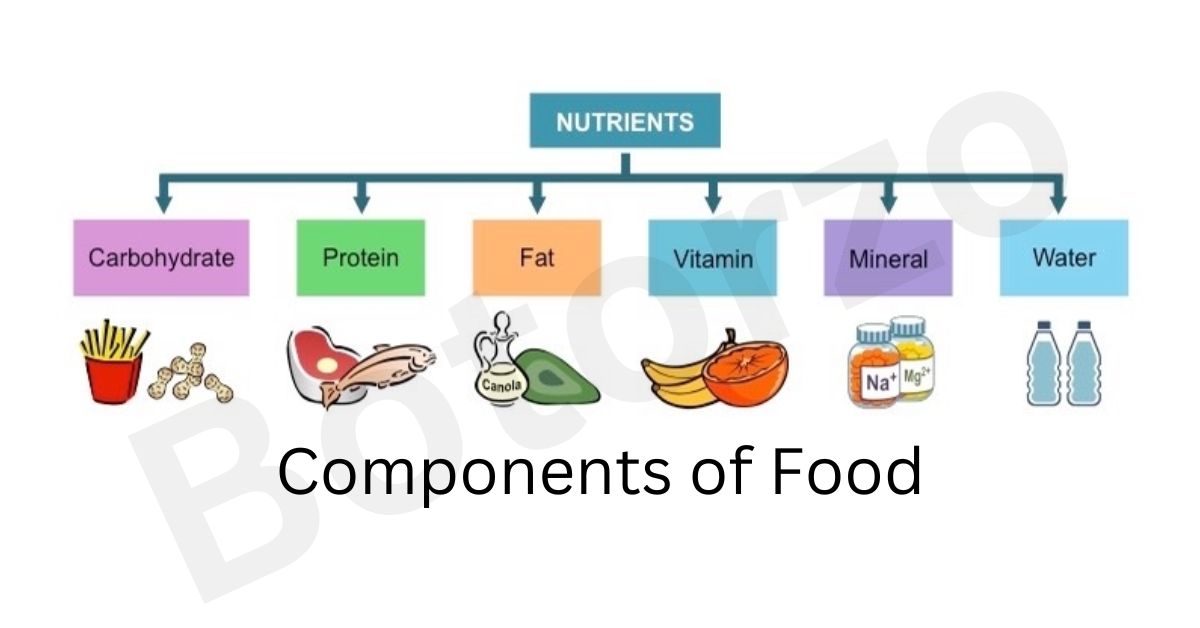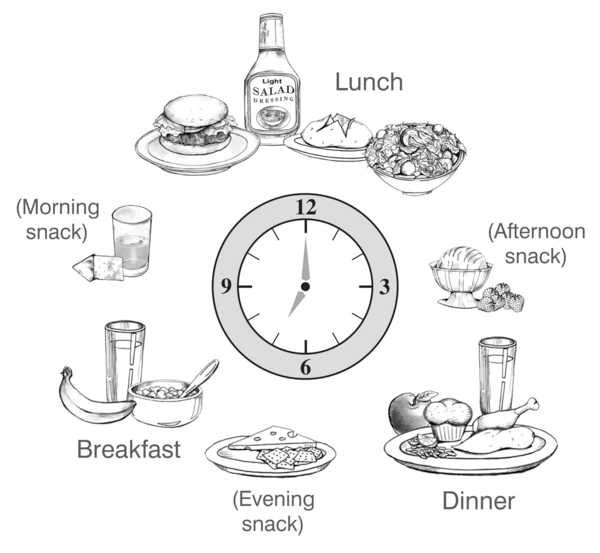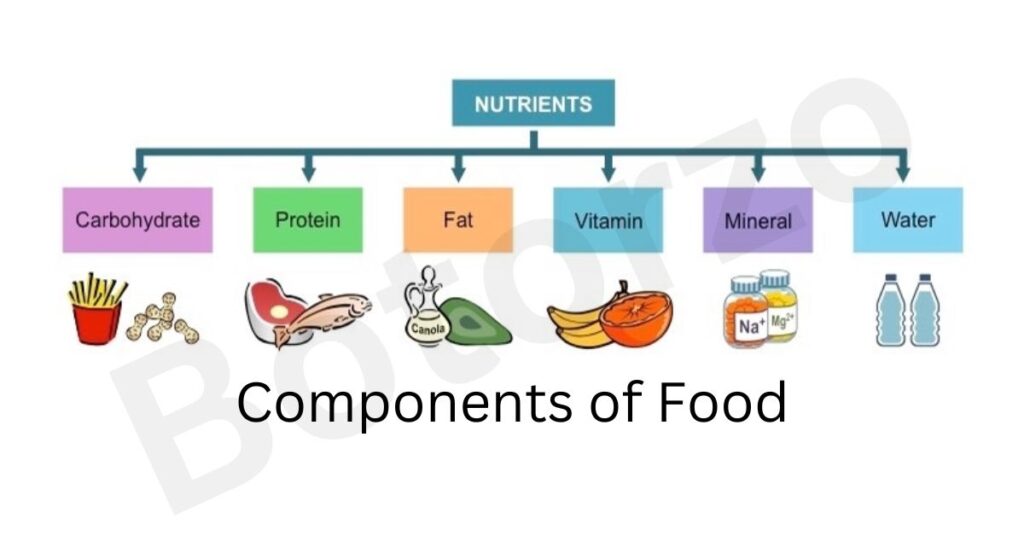
We consume several different dishes during the day, with lunch often consisting of rice and daal (lentils, veggies, and curd), and supper often consisting of fish curry. Breakfast frequently consists of bread omelets and milk. Eating offers us the power we need to function all day long, in addition to quieting the sound of our stomachs grumbling when we are hungry.

Most of our meals contain at least one item made of grains. Additional options can include a dal or a dinner with meat and vegetables. It could also include other ingredients like curd, buttermilk, and pickles. There may not always be as much variety in our meals. We can eat whatever is provided along the way when we’re traveling. Some of us might not be able to consistently eat such a variety of meals.
But there must be a rationale for why meals frequently have this distribution.
Read Also
FOOD FROM PLANT AND ANIMAL PRODUCTS
If we want a healthy heart, working muscles, and an alert brain, we must eat a balanced diet that gives our bodies the nutrients they require. These nutrients can help you grow stronger bones and gain vitality. Do you know what nutrients are, though? No, why don’t we just read it?
What are the Components of Food?
One of the numerous human rights recognized by standards is the right to get food. It is crucial to our well-being and, ultimately, to our capacity for survival. Our dietary decisions affect our health and gradually shape how we will spend the next days.
Good nutrition is a crucial component of our lives that promotes healthy living. A good diet and consistent exercise may help us maintain a healthy weight, reduce our risk of getting sick, and, of course, enhance our overall health.
WHAT DO DIFFERENT FOOD ITEMS CONTAIN?

Every meal normally contains one or more ingredients that we receive from either plants or animals, as we are all too aware. These compounds include a number of essential components for our bodies. These components are referred to as nutrients. The major nutrients in food include carbohydrates, proteins, fats, vitamins, and minerals. Additionally, food offers our bodies the water and dietary fiber that they need.
Both energy- and non-producing substances can be found in food. Our male cells require energy, which is obtained in the form of calories. Some of the nutrients that give us energy include:
What are Nutrients?
Every meal contains one or more ingredients that come from both plants and animals. These compounds include essential components that are necessary for our body to function properly. Nutrients are the name for these components. The titles of these nutrients that are present in our meals include fats, carbohydrates, proteins, vitamins, and minerals. The body also receives nutrients from food, such as dietary fibers and water.
- Carbohydrates are our bodies’ primary energy source. It is composed of sugars found in food that affect blood sugar levels right away. Carbohydrates are the main energy source for the brain. It includes bread, fruits, cereals, sweets, and vegetables. Whole grains should be consumed once daily along with fruits as they include fiber that decreases the risk of heart disease.
- Protein, the fundamental component of cells, helps the body’s tissues develop. The components of protein are the amino acids into which it decomposes. It is advisable to eat low-fat meat, beans, eggs, and other protein-rich meals. Our body needs protein to help our organs and tattered tissues repair, develop, and regenerate.
- Fats – Together with vital fatty acids, fats play a critical role in the transport system that delivers several vitamins all through the body. Eating fat is a source of energy and improves the consumption of vitamins that are fat-soluble. Eat healthful foods like walnuts, fish, and vegan oils for growth and improvement.
- Minerals and vitamins are nonetheless necessary for a healthy lifestyle, despite not being frequently needed. Vitamins give your body its form, muscles, and blood flow. Consuming fruits and vegetables like chillies can help avoid birth defects.
HOW DO DIFFERENT NUTRIENTS AFFECT OUR BODIES?
- Carbohydrates are the primary source of energy in our body. Fats provide us with energy as well.
- In reality, fats supply significantly more energy than the same amount of carbs.
- Protein-rich meals are often referred to as “body-building foods,” whereas fat- and carbohydrate-rich diets are usually referred to as “energy-supplying foods.”
- Vitamins assist in the prevention of illness and the defense of our bodies.
- Vitamins also help to maintain the health of our gums, teeth, bones, and eyes.
- Different vitamins have different names. Vitamins A, C, D, E, and K are a few examples.
- There is also a vitamin class called Vitamin B-complex.
- Our bodies require little quantities of all vitamins. Vitamin A keeps our skin and eyes healthy.
- The body’s defense against a number of illnesses is strengthened by vitamin C.
- Our bodies are helped by vitamin D to utilize calcium for our bones and teeth.
Water helps the body absorb nutrients from food. It assists in the elimination of biological wastes such as sweat and urine. Typically, liquids such as water, milk, and tea provide the bulk of the water our bodies require. Water is also added to the majority of prepared foods.
Nutrients may be present in a wide range of meals and their components. It is essential for our bodies since it drives biological activities. Nutrients are classified into six types.

What Is a BALANCED DIET?
Our diet is comprised of the foods we consume on a daily basis. All of the nutrients that our bodies require in the proper quantities for development and health maintenance should be present in our diet. Neither should be over- or under-represented. Water and roughage should be included in the diet as well. A varied diet includes a variety of foods.
Pulses, groundnuts, soybeans, sprouted seeds (like moong and Bengal gram), fermented foods (like South Indian foods like idlis), a combination of flours (like missi roti, thepla made from cereals and pulses), banana, spinach, sattu, jaggery, readily available vegetables, and other such foods contain a variety of nutrients. As a result, a nutritious diet may be achieved without the use of costly food resources.
DEFICIENCY DISEASES
A person may be getting enough food to consume, yet the diet may lack a specific nutrient. If this occurs for an extended length of time, the person may develop a deficit.
A lack of one or more nutrients in our bodies might result in illnesses or problems.
Deficiency diseases are illnesses caused by a lack of nutrients over an extended period of time
Some diseases/disorders are caused by deficiency of vitamins and minerals.
| Vitamin/ Mineral | Deficiency disease/disorder | Symptoms |
|---|---|---|
| Vitamin A | Loss of vision | Poor vision, loss of vision in darkness (night), and sometimes complete loss of vision |
| Vitamin B1 | Beriberi | Weak muscles and very little energy to work |
| Vitamin C | Scurvy | Bleeding gums and wounds take a longer time to heal |
| Vitamin D | Rickets | Bones become soft and bent |
| Calcium | Bone and tooth decay | Weak bones, tooth decay |
| Iodine | Golter | Glands in the neck appear swollen, and mental disabilities in children |
| Iron | Anemia | Weakness of |
FAQs on Components of Food
WHAT ARE THE COMPONENTS OF FOOD?
Protein
Carbohydrate
Fats
Vitamin-Mineral
Water
WHAT DO VARIOUS NUTRIENTS DO FOR OUR BODY?
they provide energy, contribute to body structure, and/or regulate chemical processes in the body
WHY IS IRON NECESSARY IN A WELL-BALANCED DIET?
Iron is an essential mineral that helps in transporting oxygen throughout the body. It is a component of haemoglobin (a substance found in red blood cells).

Comments (2)
Soinusays:
November 11, 2022 at 7:40 amThank you so much
BALANCED DIET - Botorzosays:
October 29, 2023 at 6:45 pm[…] Read the Components of food in detail. […]